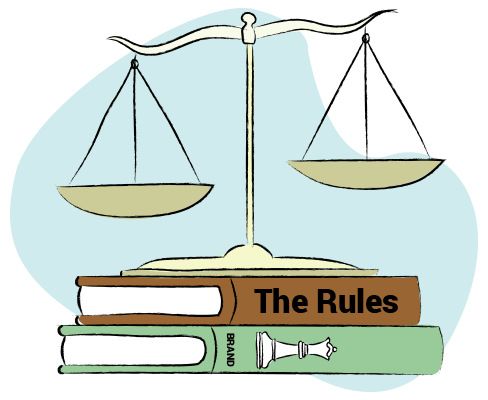Affiliate Marketing encompasses a broad range of marketing optimization tools to be aware of, understand and utilize in order to run a healthy channel – one that yields incremental growth. From emailers, to content producers, to standard loyalty and coupon affiliates and search, there are as many types of affiliates as types of advertisers. In this article, JEBCommerce is going to be focusing on brand bidding in affiliate marketing.
Brand bidding is the practice where an affiliate, whether a couponer, search agency or other category of affiliate, uses their own funds to create and display ads. Displays Ads can be on Google, Bing and other search engines- anywhere that designates them to appear on consumer searches for your brand name and/or your brand name plus other terms.
When those ads appear and a consumer clicks on them- the affiliate will receive a commission for orders placed from those links.
For example a brand bidding affiliate may have search ads for these keywords: “disney”, “disney cruises”, “disney theme park” or “disney world coupon”.
Many affiliate programs have very specific guidelines on what affiliates are able to do in this area. And even more outlaw it completely. Your TM Bidding policy should reflect your unique situation.
Why Should Brands Pay Attention to Affiliate Brand Bidding?
- Brand Protection
- Cost Control
- Channel Cannibalization
- Fraud
Most advertisers have some sort of search program running currently and most likely begin with those brand terms. Combine that with the fact that the search engines only allow one brand ad per url, and you have to be sure you are protecting that spot.
Branded ads are often the very first thing a consumer sees when they are looking for you. You want to ensure these ads properly reflect the image, emotional feeling and representation you wish to have.
Having an affiliate bid on your brand terms can increase or decrease your cost.
It’s all based on what resources you have – or don’t have – to put into search, how you structure paid search campaigns and affiliate marketing policies. Brand bidding can very easily increase your paid search costs as well as increase your affiliate channel costs. Not monitoring your brand can mean your budgets get wiped out quickly and you end up double paying for that one customer.
Active search campaigns produce great results. When allowing affiliates to bid on brand terms without thinking through the cross channel ramifications, you can end up acquiring a customer in the search channel AND paying for that customer again in the affiliate channel. A well thought out policy ensures you don’t do that.
The biggest thing you need to do is watch out for fraud. After you have a well designed paid search policy, you have to police it. And fraud happens in many different ways.
In this guide we are going to outline some of the ways nefarious affiliates can game the system and defraud you of tens of thousands, even hundreds of thousands of dollars in commissions. We’ll walk through some guidelines in setting your policy up and showcase some tools to help you monitor your policy. We’ll then wrap it up with some key takeaways for you.

Understanding the types of PPC Fraud
There are many ways affiliates can defraud you of commissions in the search engines. Here are a six types of brand bidding PPC fraud to watch for:
- Trademark Bidding – bidding on your keywords without your permission and using your url, thus removing you out of the SERPS. This can be hard to see at first glance as many will use your same ad copy and display url. But easy to see once you click through the link or use an HTTP viewer to follow the path to the landing page.
- Geo Targeting – this is the practice where an affiliate looks like they are adhering to your paid search policy, but they are merely indicating that their ads should only appear on states you don’t reside in. So in essence, they break all the rules in 49 states, but keep those infringing ads and behaviors out of the state you are in. So when you look, all looks good. An affiliate actually did this to me while I was managing paid search for Coldwater Creek back in the day and I only found out when I traveled to a state I usually didn’t travel to and I decided to check in on things. I had no idea what geo targeting was at the time and he ended up swindling away tens of thousands in commissions from us that we weren’t able to get back.
- Day Parting – This is very similar to geo targeting but instead of determining where their ad shows up, this determines when it shows up. So… in order to show ads that won’t be detected an affiliate can run them after the work day is over and no one is checking, avoiding your detection for months and months.
- Cookie Dropping – A slightly more complex issue and tactic and one that doesn’t only impact the paid search program but it is useful to discuss in this area. So here is what happens. A customer searches in google for “summer dresses”. They see an ad for Johston and Murphy’s women’s dresses and click on it. It takes them to the affiliates page and the affiliate drops cookies for every advertiser they work with, even though the customer hasn’t clicked through. That way if the customer, by chance, places an order directly at the website of any of the advertisers the affiliate forced dropped a cookie, they get credit. But they really did not send the traffic.
- Display and Landing Page URL – Google only allows a url to be used in one ad. So if your affiliate is using yours, this will bump your own ad out of rotation.
- Breaking Terms and Conditions – A paid search affiliate, or an affiliate using paid search, can be committing fraud by breaking any of your terms and conditions. You set what is allowed to be done and you have to then monitor and hold accountable those affiliates.

Setting the Right Rules for PPC Affiliates
The tactics, strategies and activities your affiliate partners are able to utilize within the search engines should be dictated by the advertiser, you.
Without guidance and contractual outlines of the acceptable and outlawed behaviors, it will become the wild wild west and you will spend more in your own PPC campaigns, more on commissions you don’t need to, and deal with more frustration than you need.
In order to help, here are some things you should look at addressing within your contractual T&C’s with all affiliates.
- Forbid Bidding. This is usually our very first step. We close the entire affiliate program to paid search bidding, whether that is TM+ or non trademark bidding. Closing the program within your contract ensures you have the toughest policy and it is clear and easy to follow for the affiliates as a whole. It’s also easy to communicate: “I’m sorry we do not allow bidding on our search terms”. Done.
- Identify partners you wish to work with. Only allow trusted partners to engage in paid search within your program. This will drastically reduce the fraud potential and lead to a much more mutually beneficial partnership.
- Determine What. What words are you ok with, or group of words, are you ok with this affiliate bidding on. Set those out in stone. You can either list the allowed list or the not allowed list, whichever is easy.
- Determine When. When will they be allowed to bid. After budgets are done? After 7pm? Weekends?
- Determine Where. Are they able to bid nationally, internationally? Do you want them to use paid search in another country to test your offer there? Do you find Canada hard to make a profit on your campaigns? Do you not ship to China, so you don’t want to advertise there?
- Determine How. Are they going to just handle a group of keywords? TM+? Or are you going to have them work more cooperatively with your team to ensure you have coverage for words you aren’t on, during times when your budget expires and in locations you don’t target? There are as many ways to work with these types of affiliates as there are types of advertisers.
Working with an affiliate for TM+ and other paid search campaigns can be incredibly fruitful, but they don’t just happen.
Unlike Kevin Costner, if you build it, they won’t come, customers I mean.
You have to be thoughtful, work with a trusted partner, and craft a policy for them that ensures your targets are hit, you don’t overspend and you build a long term, mutually beneficial partnership.

Protecting your Brand from Affiliate Hijacking
Back in the day, to protect your brand you had to do some pretty crafting things to see what was going on. You don’t have to do that any more. There are tools to use, and we only suggest one – BrandVerity. We have been a BrandVerity partner for years. In fact, I interviewed their founder for our podcast.
BrandVerity allows you to “Tell our paid search tool what to look for using parameters like keywords, geography, and frequency to ensure you uncover all infringements across all major search engines.”
They make it incredibly easy to filter the results: “The infringements are then filtered and prioritized in our PPC software so that you can review and take action. Included in the results are details such as display URLs and ad copy.”
And you can deal with infringers from right within their tool. Once you have developed your terms and conditions, your policy for search behavior, you can then use this tool to track and monitor. The most difficult part is the development of your policy, and if you need help, we are here for you.
Affiliate Marketing Brand Bidding Takeaways
- Brand Bidding can be a great drive of sales, or your biggest frustration.
- There are multiple ways your affiliates can be defrauding you.
- Don’t worry though, a well thought out plan can yield amazing results!
- And using industry leading tools provides you with security.
- JEBCommerce is the industry leading agency in managing effective, incremental affiliate programs and the leader in creating incremental paid search strategies



